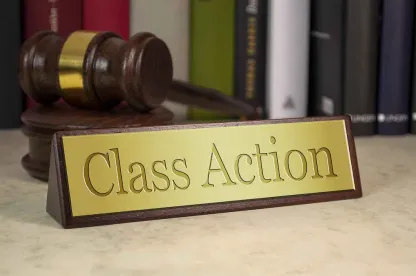Last week, the Eleventh Circuit declined, 7–4, to reconsider en banc a divided panel’s September 2020 decision barring incentive awards to class representatives for their work in class actions. As such, the Eleventh Circuit continues to stand alone among all federal circuits in prohibiting such awards.
The Court’s decision, in Johnson v. NPAS Solutions, LLC, No. 18-12344, 2022 WL 3083717 (11th Cir. Aug. 3, 2022), “tees up” an appeal to the Supreme Court. And if the Supreme Court does not grant certiorari, the decision may well prompt requests for action by the Advisory Committee on Civil Rules or by Congress, as suggested by the dissent.
Given fears among the plaintiffs’ bar that adoption of the Eleventh Circuit’s reasoning elsewhere could stifle class action litigation, this matter presents an issue of considerable interest to all class action litigators and parties.
The 2020 Panel Decision
As we previously reported, a divided Eleventh Circuit panel held two years ago that incentive or service awards to class representatives are strictly prohibited by “on-point Supreme Court precedent” from the 1880s, rendered decades before the advent of modern class action practice. Johnson v. NPAS Solutions, LLC, 975 F.3d 1244 (11th Cir. 2020).
The cases relied on by the panel were Trustees v. Greenough, 105 U.S. 527 (1881) and Central R.R. & Banking Co. v. Pettus, 113 U.S. 116 (1885). In Greenough (which Pettus cited with approval), the Supreme Court held there was no authority for “the allowance of a salary” or for reimbursement of “private expenses” to a bondholder who filed the Greenough litigation “on behalf of himself and the other bondholders,” who retained counsel, and whose actions during the litigation helped to preserve and benefit a common fund for himself and the other bondholders.
Relying on those cases, the Eleventh Circuit held that class representatives may not recover compensation for “personal services” or “private expenses.” The Eleventh Circuit then vacated, at an objecting class member’s request, a district court order granting a $6,000 incentive award to the named plaintiff in Johnson, a Telephone Consumer Protection Act case that settled for approximately $1.4 million.
The Petition for Rehearing En Banc and Last Week’s Decision
In November 2020, following the petition for rehearing en banc, six amicus briefs were filed supporting the petition, including one by 15 non-profit legal and advocacy organizations; one by Harvard Law School Professor William Rubenstein, the current author of Newberg on Class Actions; and one by 26 other law school professors. The professors argued that “[t]he Panel’s decision risks eliminating large swaths of small-value claim class actions in the Eleventh Circuit.”
Last week, more than a year and a half later, the petition was denied per curiam. Judge Kevin Newsom, who wrote the panel majority's decision, added a 121-word concurrence, expressly declining to “defend” his “handiwork” against the dissent, stating he was “content to let the panel opinion speak for itself.”
The Dissent
By contrast, Judge Jill Pryor, joined by three other judges, filed a 32-page dissent. Judge Pryor characterized the panel majority’s opinion as a “grave error,” stating that the decision “threatens the very viability of class actions in this circuit. This is particularly so in small-dollar-value class actions, where incentive awards help to encourage potential plaintiffs to serve as class representatives. . . .”
Judge Pryor said the 1881 decision in Greenough was premised on “fear of creditors running amok with litigation,” noting the monies disallowed to the lead bondholder in that case totaled “more than $1.4 million in today’s dollars.” By contrast, Judge Pryor said incentive awards are now commonplace in class actions, are subject to strict proof of fairness, and have been found to average about $12,000. In sum, Judge Pryor stated that the panel’s decision “represents a mistaken attempt to apply Greenough to a context irrevocably altered by Rule 23.”
Judge Pryor further noted that all Circuit Courts of Appeals — including the Eleventh Circuit — have routinely ratified district court approvals of incentive awards, adding that the Second Circuit has rejected the argument that Greenough and Pettus forbid such awards. Judge Pryor stated that the Eleventh Circuit’s decision, which she called an “outlier rule,” “place[s] this circuit at odds with more than 50 years of class action law and decisions from every other federal court in the country.”
Future Developments
Judge Pryor acknowledged that “although it is too early to measure, I expect that [the Johnson decision] will have a very real and detrimental impact on class actions in this circuit. . . .” While we also have not yet seen empirical evidence of such an impact, that possibility exists. Further, after last week’s decision, other courts may well decide to adopt the Eleventh Circuit’s reasoning. In fact, in two of the decisions cited in the dissent, district courts approved incentive awards due to prior practice and precedent but indicated that the Eleventh Circuit’s reasoning was appealing. One district court in San Jose said that “Johnson raises a valid issue.” And a district court in Denver said it “finds much of the reasoning in Johnson persuasive.”
So, as we said in our initial post, stay tuned. This issue remains open. We expect further developments soon — whether in the courts (including the Supreme Court), the Advisory Committee, or Congress.





 />i
/>i

